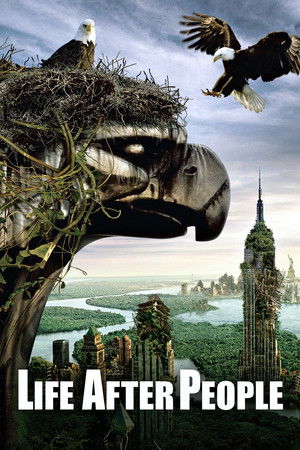
Show Info
- Status: Ended
- First Aired: November 1, 1983
- Seasons: 1
- Episodes: 6
- Networks: BBC Two
- Genres: Documentary
Where to Watch
We couldn't find any streaming providers for this show in your region.
The Real Thing(1983)
Overview
Asking how you tell what's real and what isn't sounds like an obvious question. But in this series of six programmes, James Burke shows that the more you think about it the harder it is to answer. After all, what have you got, apart from your five senses, to prove those senses are giving you the real thing?
Loading episode ratings...
This may take a moment for shows with many seasons.
No imageSeason 1
6 episodes • 1983
Season 1
6 episodes • 1983
| # | Episode | Air Date | Rating |
|---|---|---|---|
| 1 | The Private Eye | Nov 1, 1983 | 0.0 |
| 2 | This Way Up | Nov 8, 1983 | 0.0 |
| 3 | Time Out of Mind | Nov 15, 1983 | 0.0 |
| 4 | The Memory Lingers On | Nov 22, 1983 | 0.0 |
| 5 | The View from Within | Nov 29, 1983 | 0.0 |
| 6 | Life Sentence | Dec 6, 1983 | 0.0 |
Related Shows

Faster! Humanity's Quest to Save Time
2021Explores the scientific, social, economic and environmental consequences of supposedly time-saving inventions, ideas and objects. Throughout a lifetime, the minutes that are actually lost or saved can add up to days, weeks, months or even years.

Sunset in the Golden State
2019Stefan Molyneux, host of Freedomain Radio, travels to California to explore all of the political, economic, moral and demographic complexities of the Golden State. What he learned astounded him—what he shows you will shock you…

Life, Death and Reincarnation
2015An epic adventure that aims to unravel the mystery at the heart of our existence: the questions of our identity and our destiny. The series features some of the world’s most baffling real life stories and exciting findings in the fields of consciousness studies, near-death experiences and past-life memories. Adventurous researchers following the evidence where it leads them have discovered that the lines of evidence converge to a conclusion that is refreshingly new – yet perennially known.

Wanderlust
2016Polish-Flemish philosopher Alicja Gescinska interviews national and international personalities with diverse philosophical and religious backgrounds.

The Greeks: Crucible of Civilization
2000In the fourth and fifth centuries, B.C., the Greeks built an empire that stretched across the Mediterranean from Asia to Spain. They laid the foundation of modern science, politics, warfare and philosophy, and produced some of the most breathtaking art and architecture the world has ever seen. It was perhaps the most spectacular flourishing of imagination and achievement in recorded history.

The Essential Lectures of Alan Watts
1972The Essential Lectures of Alan Watts video series was recorded in 1971 above Muir Woods, California, and in 1972 aboard the ferryboat the SS Vallejo in Sausalito. Produced by his son Mark and directed by long-time archivist Henry Jacobs, the series explores core philosophical themes that spawned over Watts' career.

States of Mind
1983Series of programmes about psychology, in which Jonathan Miller talks to eminent psychologists about their theories and beliefs.

Wonders of the Universe
2011Professor Brian Cox reveals how the fundamental scientific principles and laws explain not only the story of the universe but also answer mankind's greatest questions.

The Philosophical Cafe
2009A journey that tells the thought of the greatest protagonists of Western philosophy, from its origins to the great thinkers of the twentieth century, through the story of great contemporary philosophers.

Life After People: The Series
2009Life After People is a television series on which scientists, structural engineers, and other experts speculate about what might become of Earth should humanity instantly disappear. The featured experts also talk about the impact of human extinction on the environment, and the vestiges of civilization thus left behind.

Time
2006Time is a 2006 documentary television series first broadcast on BBC Four in the United Kingdom. It is written and presented by Michio Kaku.

Amour, haine et propagande
2010No description available.

Philosophy: A Guide to Happiness
2000Alain de Botton's psychobabble-free self-help course for the philosophically minded.

2005, état d'urgence
2025No description available.

Brain Games
2011Get ready to have your mind messed with! "Brain Games" is a groundbreaking series that uses interactive experiments, misdirection and tricks to demonstrate how our brains create the illusion of seamless reality through our memory, through our sensory perception, and how we focus our attention.

The Great Ideas of Philosophy, 2nd Edition
2004These lectures offer a coherent and beautifully articulated introduction to the great philosophic conversation of the ages. They cover an enormous range of seminal thinkers and perspectives, but always from the vantage point of the enduring questions: What can we know? How ought we to act? How should we order our life together?

From Aristotle to Hawking
2007No description available.

The Owl's Legacy
1989A 13-part documentary series by Chris Marker examining how ancient Greek ideas continue to shape modern Western thought. Each episode centers on a single Greek word—such as “democracy,” “philosophy,” or “mythology”—through conversations filmed in cities around the world. Combining symposium-style discussions with archival footage and visual motifs of the owl, Marker creates an expansive reflection on the enduring legacy of Greece.

Testing God
2001David Malone’s 3-part series takes a fresh look at how the universe was formed, from a scientific and theological point of view. TESTING GOD re-examines the relationship between science and religion and asks: is science’s claim to victory premature?

Churches: How to Read Them
2010No description available.